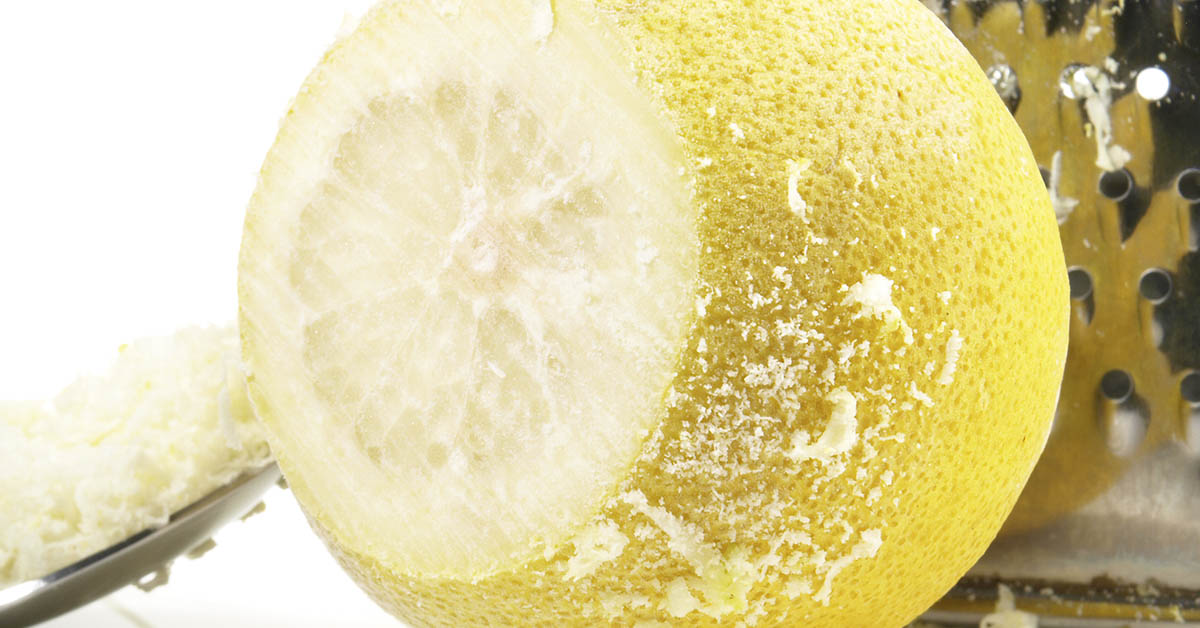Lemons are a versatile fruit used in many dishes, from sweet to savory and everything in between. Many summer favorites include lemonade, lemon sorbet, and other refreshing lemon-flavored desserts. So now is a good time to stock up on these citrus fruits. But don’t worry about them all going bad at once. Lemons are very easy to freeze, whether they are sliced, zested, juiced, or even whole. So enjoy the nutritional benefits and delicious taste of lemons for the rest of the summer without worrying about buying too many at once.
The Health Benefits of Lemons
Despite their popularity, people don’t eat lemons like they do oranges and grapefruits. That’s actually a shame because lemons are an excellent source of vitamin C, potassium, and antioxidants. They also contain small amounts of vitamin B6, magnesium, thiamin, manganese, and riboflavin. [1] The lemon peel also hosts many nutrients, such as high amounts of vitamin C, antioxidants, and fiber, as well as small amounts of magnesium, potassium, and calcium. [2]
Research has shown that the compounds in lemons can lead to many health benefits, including lowering stroke risk, lowering blood pressure, protecting skin from damage, increasing iron absorption, as well as improving the immune system. The peel, in particular, contains a compound called D-limonene, which is responsible for many of the benefits found in this part of the fruit. These include reducing the risk of heart disease, protecting the immune system, and reducing the risk of stomach cancer, although the latter needs more studies to prove.
Why You Should Freeze Lemons
There are many ways to enjoy lemons and lemon peels. There’s the classic lemon water, lemon pie, roast chicken, salmon, candied lemon peels, cocktail garnishes, lemon cake, lemon curd, and of course, lemonade. However, many recipes only need a small amount at a time. But you don’t worry about buying too many at once. You can freeze lemons in many different ways, depending on the recipes you might want to use in the future. But before you do start, wash the lemons with vegetable cleaner or vinegar and rinse them thoroughly, especially if you want to use the rind. [3]
Read: 7 Reasons You Should Eat More Limes
There’s no going wrong with freezing lemons for three main reasons:
- They are packed with nutrients, and you reap the benefits of the whole fruit, including the peel and rind.
- They are delicious and enhance many types of dishes and desserts.
- You’ll never worry about running out of these amazing fruits. You could head to the freezer whenever you’re cooking to take whatever ingredient you need, whether it’s whole lemons, sliced lemons, zest, or juice.
How to Freeze Lemons
Freezing Whole Lemons

In order to freeze whole lemons, simply place them into a freezer-safe, resealable plastic bag. Remove as much excess air as you can as you zip up to help keep the lemons fresh for longer. (Remember, you can also zest the lemons before freezing them whole. See the lemon zest section for more details.) Place the bag of lemons into the freezer until you need them. Lemons will stay fresh for about three or four months in the freezer.
To defrost them, submerge the lemons in cold water for about 10 minutes. The lemons will be soft and mushy, so you won’t be able to use them as a garnish. Instead, you can grate the rind and squeeze the fruit for juice, depending on what you’re cooking.
Read: 3-ingredient elixir that you should make this winter to deal with Sore throat, cough, colds, and other throat conditions
Freezing Lemon Slices

If you slice a lemon before you freeze it, you can use it for garnishes and in cocktails, unlike frozen whole lemons. Plus, you can implement the slices into a recipe as soon as you take them from the freezer. First, cut the lemon into slices about a quarter of an inch thick. You could also choose to cut the slices in half to create crescents or opt for lemon wedges.
Next, spread the slices or wedges onto a cookie sheet, allowing some space between them. This step is important because it makes the slices freeze individually instead of freezing together into a clump. So freeze the slices for about two or three hours or until the lemons feel hard and no juice escapes when you press into the pulp. Place all of the slices into a resealable plastic bag and take the individual slices as needed.
Freezing Lemon Zest

Zest whole lemons using a grater or zester. (You could also zest whole frozen lemons.) Place all of the zest into a plastic bag and store it in the freezer until needed. You can freeze the rest of the lemons, juice them, or use them soon after in another recipe. Whenever you need zest, take as much as you need and re-freeze the rest.
Freezing Lemon Juice

Juice the lemons using a juicer or a reamer. If you don’t have either, you could simply cut the lemons into quarters, place them into a bowl, and press the wedges with a fork to squeeze out as much juice as you can. Take out any seeds that may have come loose. Now, measure the juice; it’s a lot easier to do now as opposed to when it’s frozen. Then pour it all into an ice tray. If you have half a cup of lemon juice, for example, take note of how many ice cubes you’ll fill so you can use precise amounts when cooking later. You can also use these ice cubes to flavor water. [4]
Keep Reading: Benefits of Lemon Water: What’s Myth and What’s Fact?
Sources
- “How can lemons benefit your health?” Medical News Today. Megan Ware, RDN, L.D. July 24, 2023.
- “9 Benefits and Uses of Lemon Peel.” Healthline. Ariane Lang, BSc, MBA. August 19, 2019.
- “How to Freeze Lemons.” WikiHow. November 11, 2022.
- “Can You Freeze Lemons?” Eating Well. Alex Loh. January 31, 2022.

